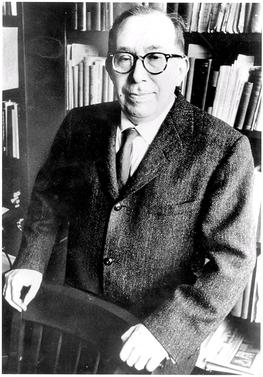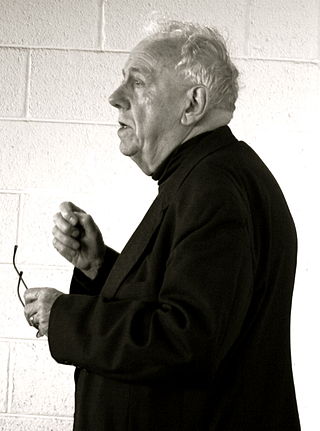
George Edward Moore was an English philosopher, who with Bertrand Russell, Ludwig Wittgenstein and earlier Gottlob Frege was among the initiators of analytic philosophy. He and Russell began deemphasizing the idealism which was then prevalent among British philosophers and became known for advocating common-sense concepts and contributing to ethics, epistemology and metaphysics. He was said to have an "exceptional personality and moral character". Ray Monk later dubbed him "the most revered philosopher of his era".
Metaphilosophy, sometimes called the philosophy of philosophy, is "the investigation of the nature of philosophy". Its subject matter includes the aims of philosophy, the boundaries of philosophy, and its methods. Thus, while philosophy characteristically inquires into the nature of being, the reality of objects, the possibility of knowledge, the nature of truth, and so on, metaphilosophy is the self-reflective inquiry into the nature, aims, and methods of the activity that makes these kinds of inquiries, by asking what is philosophy itself, what sorts of questions it should ask, how it might pose and answer them, and what it can achieve in doing so. It is considered by some to be a subject prior and preparatory to philosophy, while others see it as inherently a part of philosophy, or automatically a part of philosophy while others adopt some combination of these views.

John Bordley Rawls was an American moral, legal and political philosopher in the modern liberal tradition. Rawls has been described as one of the most influential political philosophers of the 20th century.

Richard McKay Rorty was an American philosopher. Educated at the University of Chicago and Yale University, he had strong interests and training in both the history of philosophy and in contemporary analytic philosophy. Rorty's academic career included appointments as the Stuart Professor of Philosophy at Princeton University, Kenan Professor of Humanities at the University of Virginia, and Professor of Comparative literature at Stanford University. Among his most influential books are Philosophy and the Mirror of Nature (1979), Consequences of Pragmatism (1982), and Contingency, Irony, and Solidarity (1989).

Leo Strauss was a 20th century German-American scholar of political philosophy who specialized in classical political philosophy. Born in Germany to Jewish parents, Strauss later emigrated from Germany to the United States. He spent much of his career as a professor of political science at the University of Chicago, where he taught several generations of students and published fifteen books.

Sir Anthony John Patrick Kenny is a British philosopher whose interests lie in the philosophy of mind, ancient and scholastic philosophy, the philosophy of religion, and the philosophy of Wittgenstein of whose literary estate he is an executor. With Peter Geach, he has made a significant contribution to analytical Thomism, a movement whose aim is to present the thought of St. Thomas Aquinas in the style of analytic philosophy. He is a former president of the British Academy and the Royal Institute of Philosophy.
An op-ed piece is a short newspaper column that represents the strong, informed, and focused opinion of a writer on an issue of relevance to a targeted audience. It is a written prose piece which expresses the opinion of an author or entity with no affiliation with the publication's editorial board. The term is short for "opposite the editorial page", referring to the practice of newspapers placing op-eds on the opposite side of their editorial page. The New York Times is often credited with developing and naming the modern op-ed page.

Alasdair Chalmers MacIntyre is a Scottish-American philosopher who has contributed to moral and political philosophy as well as history of philosophy and theology. MacIntyre's After Virtue (1981) is one of the most important works of Anglophone moral and political philosophy in the 20th century. He is senior research fellow at the Centre for Contemporary Aristotelian Studies in Ethics and Politics (CASEP) at London Metropolitan University, emeritus Professor of Philosophy at the University of Notre Dame, and permanent senior distinguished research fellow at the Notre Dame Center for Ethics and Culture. During his lengthy academic career, he also taught at Brandeis University, Duke University, Vanderbilt University, and Boston University.

Alfred Cyril EwingFBA, was an English philosopher who spent most of his career at the University of Cambridge. He was a prolific writer who made contributions to Kant scholarship, metaphysics, epistemology, ethics, and the philosophy of religion.
Contemporary philosophy is the present period in the history of Western philosophy beginning at the early 20th century with the increasing professionalization of the discipline and the rise of analytic and continental philosophy.

Kwame Akroma-Ampim Kusi Anthony Appiah is a British American philosopher and writer who has written about political philosophy, ethics, the philosophy of language and mind, and African intellectual history. Appiah was the Laurance S. Rockefeller University Professor of Philosophy at Princeton University, before moving to New York University (NYU) in 2014. He holds an appointment at the NYU Department of Philosophy and NYU's School of Law. Appiah was elected President of the American Academy of Arts and Letters in January 2022.
David Charles Stove was an Australian philosopher whose writings often challenged prevailing academic orthodoxy. He was known for his critiques of postmodernism, feminism, and multiculturalism.

Jennifer Michael Hecht is a teacher, author, poet, historian, and philosopher. She was an associate professor of history at Nassau Community College (1994–2007) and most recently taught at The New School in New York City.
Paul Edwards was an Austrian-American moral philosopher. He was the editor-in-chief of MacMillan's eight-volume Encyclopedia of Philosophy from 1967, and lectured at New York University, Brooklyn College and the New School for Social Research from the 1960s to the 1990s.

Simon Critchley is an English philosopher and the Hans Jonas Professor of Philosophy at the New School for Social Research in New York, USA.

Thomas Lee Pangle, is an American political scientist. He holds the Joe R. Long Chair in Democratic Studies in the Department of Government and is Co-Director of the Thomas Jefferson Center for Core Texts and Ideas at the University of Texas at Austin. He has also taught at the University of Toronto and Yale University. He was a student of Leo Strauss.

John (Johann) Bernhard Stallo was a German-American academic, jurist, philosopher, and ambassador.
Peter Hermann Wehner is an American writer and former speechwriter for the administrations of three Republican U.S. presidents. He is a senior fellow at the Trinity Forum. Wehner is a contributing opinion writer for The New York Times, a contributing editor at The Atlantic, and the author of The Death of Politics.
Bryan W. Van Norden is an American translator of Chinese philosophical texts and scholar of Chinese and comparative philosophy. He has taught for twenty five years at Vassar College, United States, where he is currently the James Monroe Taylor Chair in Philosophy. From 2017 to 2020, he was the Kwan Im Thong Hood Cho Temple Professor at Yale-NUS College in Singapore.
"The Meat Eaters" is a 2010 essay by the American philosopher Jeff McMahan, published as an op-ed in The New York Times. In the essay, McMahan asserts that humans have a moral obligation to stop eating meat and, in a conclusion considered to be controversial, that humans also have a duty to prevent predation by individuals who belong to carnivorous species, if we can do so without inflicting greater harm overall.











